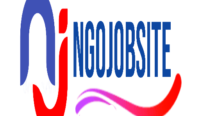
Position: Project Geologist
Reports to: Project Coordinator
Grade Level: Manager
Job Summary
OGF seeks a Geologist to support the effective execution of its water, energy and waste management projects. The incumbent will provide expert advice on sub-surface conditions, water movement, climate change, land-use, environmental protection, and hazard assessment. As a key part of a multidisciplinary team, the Geologist will provide geological data and other relevant information to stakeholders, for effective decision making.
Principal Duties and Responsibilities
● Conduct thorough geological interpretation of subsurface data, including well logs, seismic surveys, core samples, and other relevant data.
● Study aquifers, water tables, and flow patterns to determine sustainable water sources as well as analyze soil types, rock formations, and subsurface structures that impact water flow.
● Assess the movement, availability, and quality of groundwater.
● Investigate the geological and hydrogeological conditions of a project site as well as recommend optimal locations for wells and boreholes based on aquifer depth, water quality, and recharge rates.
● Create numerical models to simulate groundwater flow as a basis for determining well placement, pumping rates, and sustainability.
● Analyze water samples for contaminants, minerals, and salinity to ensure water quality meets regulatory standards.
● Assess the potential impact of water extraction on ecosystems and recommend mitigation measures to minimize harm.
● Design remediation plans for contaminated sites.
● Ensure water projects adhere to environmental regulations, assist in obtaining permits and oversee compliance reporting.
● Work closely with cross-functional teams, including geoscientists, engineers, land professionals, and management, to ensure effective communication and alignment of project objectives.
● Ensure compliance with applicable environmental and safety regulations.
● Implement innovative approaches and best practices to support project success.
Competencies and Skills Requirements
Geological Expertise:
● Strong knowledge of geological principles, including mineralogy, petrology, sedimentology, and stratigraphy.
● Proficiency in geological mapping, fieldwork techniques, and interpreting geological data.
Environmental Science Skills:
● Understanding of environmental processes, including soil formation, hydrology, and ecological systems.
● Knowledge of environmental impact assessment (EIA) methodologies and environmental regulations.
GIS and Remote Sensing:
● Proficiency in Geographic Information Systems (GIS) software for spatial analysis, mapping, and modeling.
● Familiarity with remote sensing techniques for environmental monitoring and assessment.
Data Analysis and Interpretation:
● Ability to collect, analyze, and interpret geological and environmental data to inform project decisions.
● Experience with statistical analysis software and data visualization tools.
Project Planning and Implementation:
● Ability to develop project plans, set objectives, and establish timelines for project implementation.
● Experience coordinating fieldwork activities, managing resources, and overseeing project logistics.
Risk Assessment and Mitigation:
● Skills in identifying potential risks and hazards associated with geological and environmental projects.
● Ability to develop risk mitigation strategies to ensure project safety and success.
Budgeting and Resource Management:
● Proficiency in budget development, cost estimation, and financial management for project activities.
● Experience managing project resources efficiently to maximize project impact within budget constraints.
Effective Communication:
● Strong written and verbal communication skills for preparing technical reports, presenting findings, and communicating with diverse stakeholders.
● Ability to convey complex geological and environmental concepts in a clear and accessible manner.
Community Engagement:
● Experience engaging with rural and marginalized communities to understand their needs, concerns, and perspectives.
● Ability to communicate project objectives, solicit community input, and build trust with local stakeholders.
Collaboration and Networking:
● Skilled in building and maintaining relationships with partner organizations, government agencies, and other stakeholders involved in environmental projects.
● Ability to collaborate effectively with multidisciplinary teams to achieve project goals. Cultural Competence:
● Sensitivity to cultural norms, values, and traditions in rural and marginalized communities.
● Ability to work respectfully and collaboratively with diverse cultural groups.
Adaptability:
● Flexibility and adaptability to work in challenging environments with limited resources and infrastructure.
● Ability to adjust project plans and strategies based on evolving circumstances and community needs.
Key Performance Indicators (KPI)
Project Implementation and Effectiveness
● Project Timeline Adherence: Measures the extent to which project activities are completed within planned timelines, indicating efficiency in project implementation.
● Completion of Project Milestones: Tracks the achievement of key project milestones, demonstrating progress towards project objectives and outcomes.
● Quality of Project Deliverables: Assesses the quality and accuracy of geological and environmental reports, maps, assessments, and other project deliverables produced by the geologist.
Stakeholder Engagement and Community Impact
● Community Satisfaction: Gauges the satisfaction levels of community members with the project, measured through surveys, feedback mechanisms, or community meetings.
● Stakeholder Collaboration: Tracks the level of collaboration and engagement with local communities, government agencies, NGOs, and other stakeholders involved in the project. Resource Management and Budget Adherence
● Budget Utilization: Tracks the utilization of project funds against the allocated budget, ensuring efficient use of resources and adherence to financial guidelines.
● Resource Allocation Efficiency: Measures the efficiency of resource allocation, including personnel, equipment, and materials, to maximize project impact and minimize waste. Technical Proficiency and Innovation
● Technical Skill Development: Tracks the professional development and acquisition of new skills by the project geologist, such as training in advanced geological techniques or environmental assessment methodologies.
● Innovative Solutions: Measures the development and implementation of innovative solutions to geological or environmental challenges, enhancing project effectiveness and sustainability. Environmental and Community Health KPIs
● Environmental Health Indicators: Monitors key environmental health indicators, such as air quality, water quality, soil contamination levels, or biodiversity, to assess the impact of project interventions on environmental sustainability.
Minimum Qualifications
● A bachelor’s degree in engineering Geology, Geology or Geological Engineering, environmental science, or a related field.
● Experience in site characterization; logging of exploratory trenches, small and large diameter boreholes (including downhole logging); geologic mapping and development of geologic cross-sections; aerial photograph interpretation; and fault studies.
● Project management skills including budgeting, proposal preparation, staff supervision and client relations.
● Excellent technical writing skills.
● Social enterprise and environmental sustainability background is a plus
● Ability to travel for field projects up to 50-90% of the time.
● Remediation experience will be an added advantage.
OGF is an equal opportunity employer. Qualified candidates are encouraged to apply without discrimination on grounds of ethnicity, race, marital status, gender, age, religion, disability status or political persuasion.



